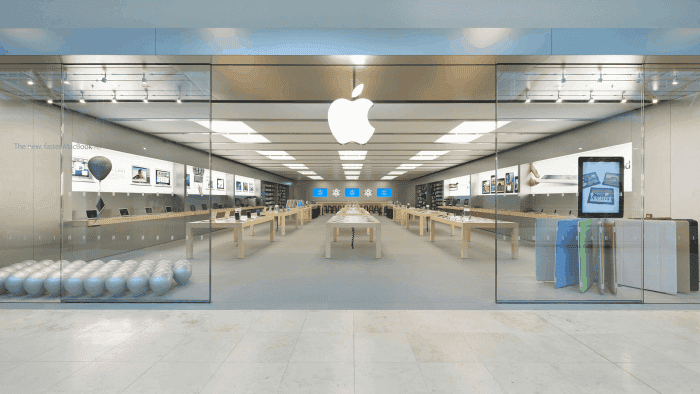Apple’s recent response to the EU Digital Markets Act (DMA) has ignited significant dissatisfaction among developers. The company, previously found in violation of the DMA, has introduced changes that appear to offer more freedom to developers. However, these changes come with new fees, sparking concern and frustration within the developer community. This article explores the details of Apple’s response, the reactions from developers, and the broader implications for the tech industry.

Apple’s Initial Violation of the DMA
The conflict between Apple and the European Union (EU) began when regulators ruled that Apple had violated the DMA. The violation stemmed from Apple’s refusal to allow developers to guide users to alternative platforms for purchasing content and services. This restriction prevented developers from promoting their products outside of the App Store, limiting their ability to offer competitive pricing or avoid Apple’s fees.
The DMA was designed to prevent such monopolistic practices, ensuring that dominant digital platforms like Apple do not unfairly control the market. By restricting developers’ options, Apple was seen as leveraging its power to maintain control over app purchases and, by extension, the revenue generated from those transactions.
Apple’s Concessions and New Fees
Faced with pressure from the EU, Apple made concessions that, on the surface, appeared to address the concerns raised by regulators. Starting this fall, developers in the EU will be allowed to add links within their apps, guiding users to other platforms where they can complete purchases. This could include other app stores, apps, or even websites, accessed either outside the app or through a web view within the app.

However, the concessions were not as straightforward as they seemed. Apple introduced a new “store service fee,” which applies to digital goods or services sold through any platform within the first year after a user installs an app. This fee means that even if users purchase products on other platforms, such as third-party app stores or developer websites, Apple will still take a percentage of the transaction.
What makes this fee particularly controversial is that it resets every time a user reinstalls or updates the app. This essentially traps developers in a cycle of ongoing payments to Apple, even if the purchases occur outside the App Store.
The Fee Structure: A Closer Look
Apple’s new fee structure has been met with strong opposition from developers. The fee structure is as follows:
- 20% Fee: This applies to apps listed only on the App Store.
- 10% Fee Plus Other Charges: This applies to apps listed on third-party app stores.
- Additional 5% Fee: This applies to digital goods and services purchased on any platform within one year after the user installs the app.
In total, Apple can earn up to 25% of a user’s purchase within one year of downloading the app. This fee structure has raised concerns among developers who feel that Apple is imposing unfair charges on transactions that occur outside of its ecosystem.
Developer Backlash
The new fees have caused anger among developers. Many see Apple’s steps as a clear way to avoid the rules of the DMA while still taking money from app sales. Jeanne Moran, a spokesperson for Spotify, said that Apple’s plan is “clearly tricky.” She argued that Apple is breaking the rules of the DMA, which forbids extra charges on key parts like pricing and linking. She said
“We are evaluating Apple’s deliberately confusing proposal. Apple has once again blatantly ignored the basic requirements of the Digital Markets Act. The European Commission has made it clear that it is unacceptable to impose duplicate charges on basic elements such as pricing and linking. We call on the Commission to speed up its investigation, impose daily fines and enforce DMA.”

Tim Sweeney, the CEO of Epic Games, also voiced his anger with Apple’s plan. Sweeney, who has fought Apple in court over similar issues, sees these new fees as another sign of Apple’s unfair control over the market.
Apple’s Justification
Apple, in reply, says its steps are fair. The company claims that the App Store gives great value to developers by helping them reach users in the EU. Apple argues that it needs the first fee to cover the cost of finding new users. They also say the store fee is fair because it covers ongoing services like safety, payments, and help for users. Even with these points, developers still feel Apple is using its power to keep control of app sales. To them, the fees are just a way for Apple to keep taking money from apps, even when sales happen outside the App Store.
The Role of the European Commission
With the controversy now in full swing, the role of the European Commission becomes crucial. Developers like Spotify are calling on the Commission to expedite its investigation into Apple’s practices, impose daily fines, and enforce the DMA. The Commission has the power to impose significant penalties on companies that violate the DMA, and many developers are hoping for swift action.
The outcome of this investigation could have far-reaching implications, not only for Apple but for the broader tech industry. If the Commission takes a strong stance against Apple, it could set a precedent that forces other tech giants to reconsider their practices. On the other hand, if Apple’s actions are deemed compliant with the DMA, it could signal a shift in how the law is interpreted and enforced.
Conclusion
Apple’s response to the EU Digital Markets Act has sparked a wave of dissatisfaction among developers, who see the company’s new fee structure as a blatant attempt to bypass the law while continuing to extract revenue from app transactions. The introduction of a “store service fee” that applies even to purchases made outside the App Store has raised serious concerns about Apple’s commitment to fair competition.
As the European Commission continues its investigation, the tech world is watching closely. The outcome will not only determine the future of Apple’s practices in the EU but could also influence how other dominant platforms operate in the global digital marketplace.
The controversy highlights the ongoing tension between large tech companies and regulators, as both sides navigate the complex landscape of digital markets. We do not know if Apple’s concessions will be enough to satisfy the EU remains. But for now, developers are still grappling with the implications of these new fees.





